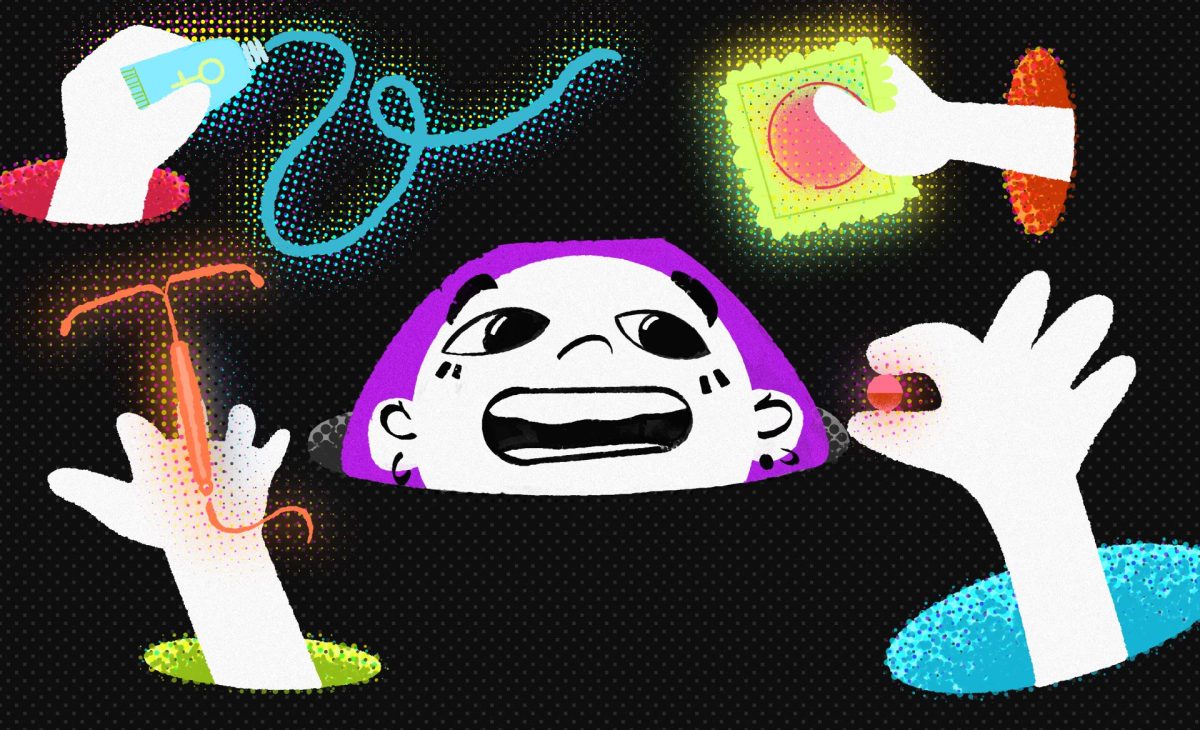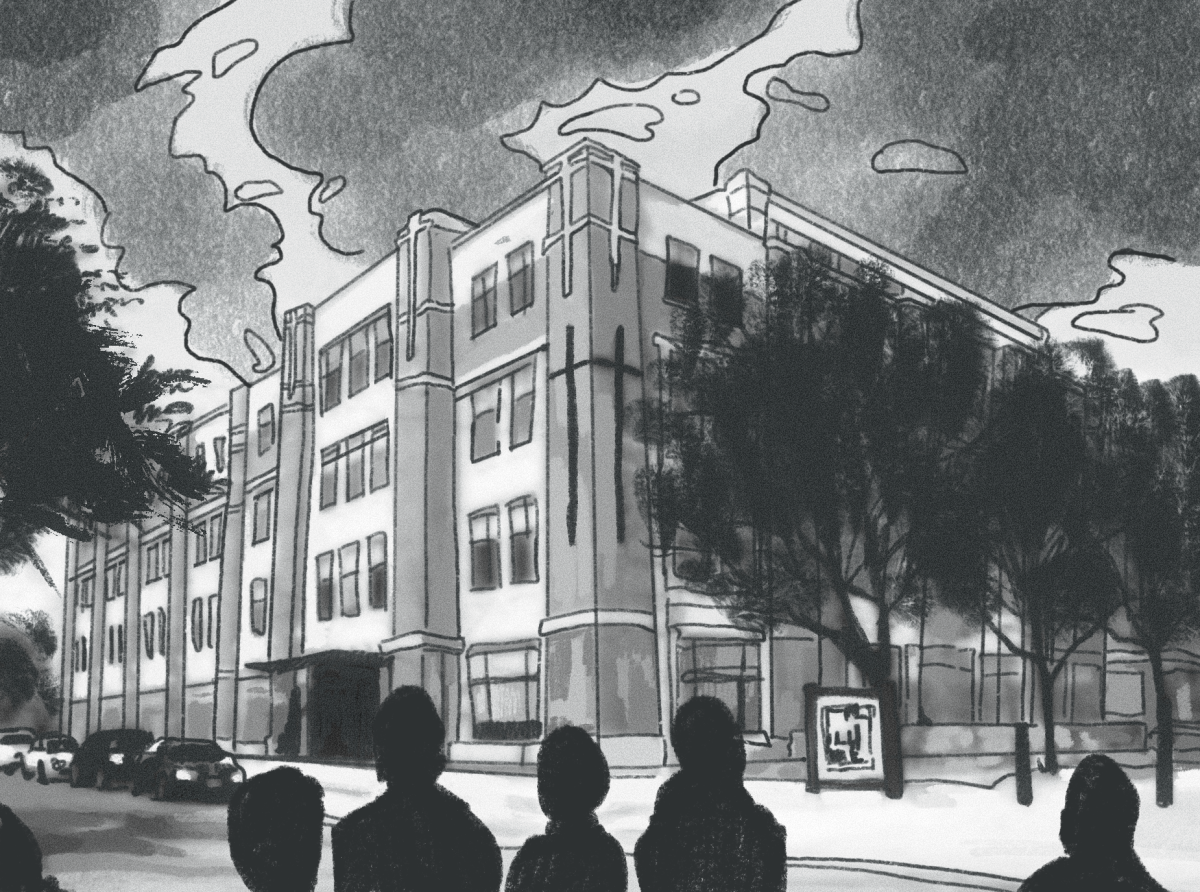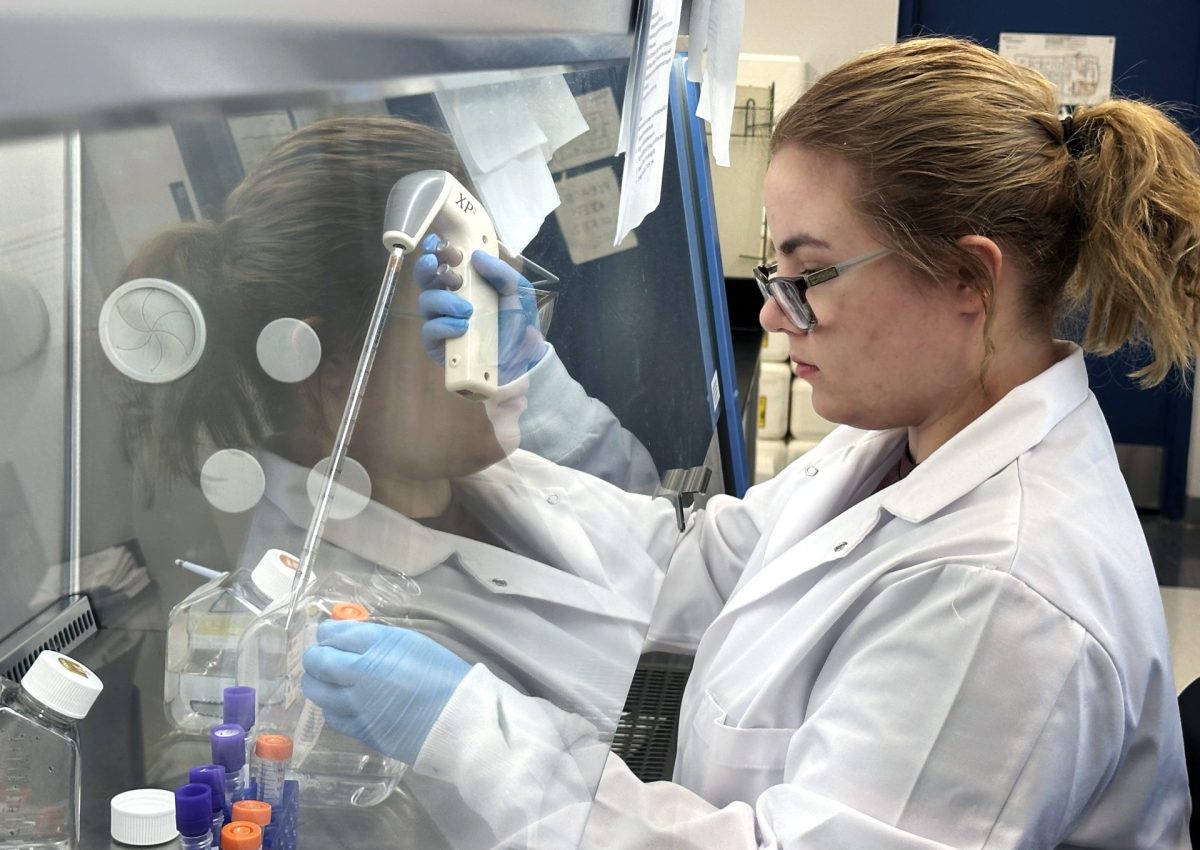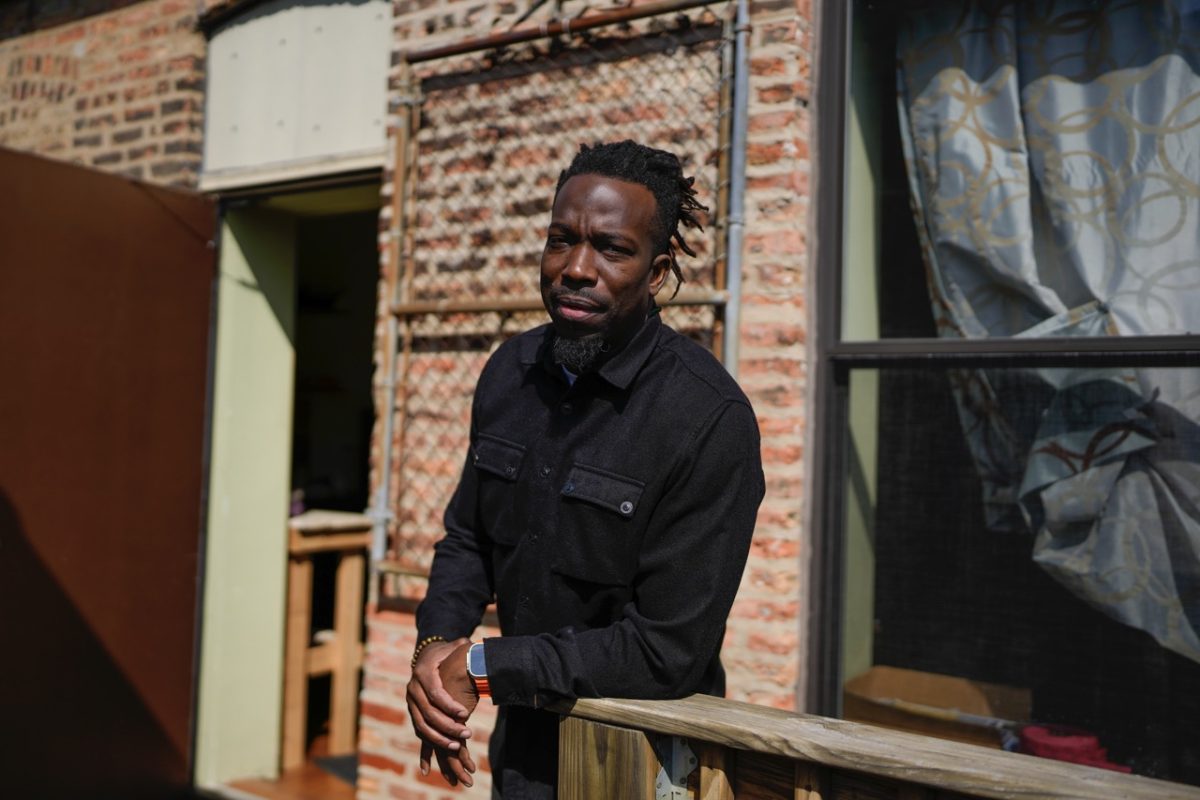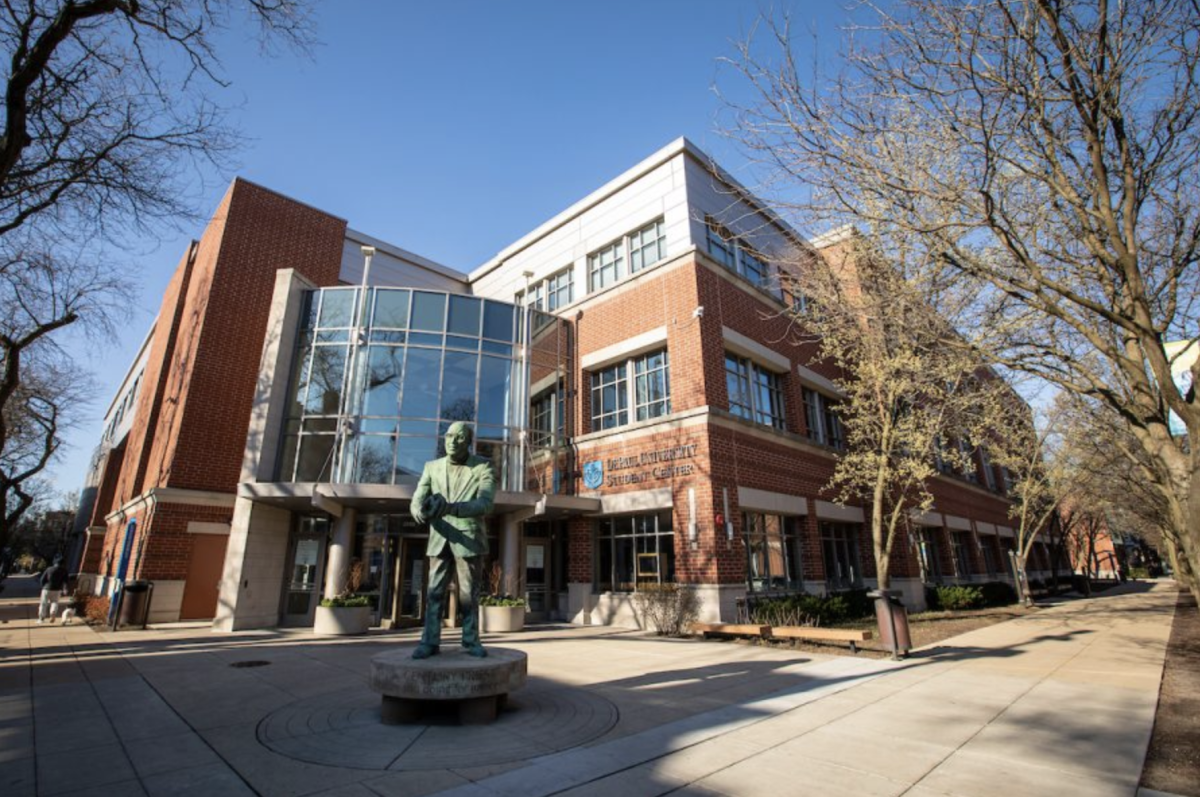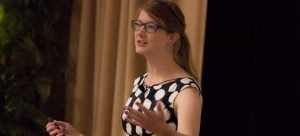
Over 150 people attended the 10th annual LaDuke Women in Mathematics, Science, and Technology Lecture series Monday night featuring Internet celebrity and self-professed “science communicator” Emily Graslie.
The event was so popular, that it had to be moved from McGaw Hall to the larger Student Center.
“Normally we have had senior women in science,” said Jeanne LaDuke, the lecture’s namesake, alluding to the under-attendance of previous years’ lectures.
LaDuke, whose time as a professor in DePaul’s Mathematics department spanned nearly three decades, sees young communicators like Graslie as indicative of a new direction in the STEM fields, not only for including more women, but also in how science reaches the public.
“Emily, of course, is young, popular. She has her blog and website and YouTube,” LaDuke said, referring to the Brain Scoop YouTube channel Graslie runs as Chief Curiosity Correspondent at Chicago’s Field Museum of Natural History.
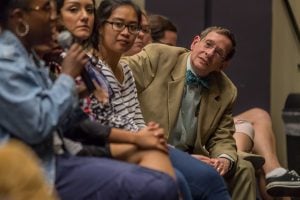
Popular is an understatement as the channel boasts nearly a quarter-million subscribers, 8.7 million views, and a combined ten hours of educational programming across 95 videos.
“That’s why scientists are so willing to work with me,” Graslie said after the event.
Brain Scoop has become a valuable asset to the Field Museum since it gives their staffed researchers a platform.
“I am the outreach component for our scientists,” she said during her lecture. “They do all this work, but they have no way to get it to the public.”
However, there is a component of her work not written into her job description that has become reality she faces every day: the stigma of women working in science.
Graslie’s most-viewed video titled “Where My Ladies At,” which clocks in at 859 thousand views, details her frustrations with the comments viewers leave on her videos which range from asking for nude photos to dismissing her for her appearance.
In her presentation, Graslie alluded to an informal poll she took of her viewers to name other female science communicators. Toward the top of the list was Kari Byron of the Discovery Channel show “Mythbusters” who notoriously posed in a bikini and a labcoat for FHM Magazine.
“Do a simple Google search,” said Graslie in front of a slide with a screenshot of the Wikipedia entry for scientist. “You only get three women, two of which were only added last year.”
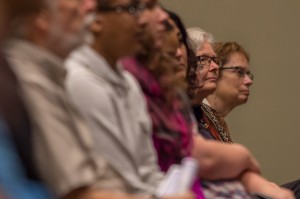
Graslie, who identifies as a feminist, believes she and other female science communicators such as Vi Hart and Elise Andrew break down gender stereotypes with every video or blog they post.
The lecture fit in appropriately at DePaul, since it stands out in having many female students studying the STEM fields. “
“We’re fortunate to have half of our STEM students at DePaul be women, and 40 percent of faculty in STEM are women,” said Gerald Koocher, Dean of DePaul’s College of Science and Health.
According to the National Girls Collaborative Project, the national percentage of females in each of the STEM fields average considerably lower, with 48 percent in Medical Sciences, 13 percent in engineering, and 25 percent in computer and mathematical sciences.





